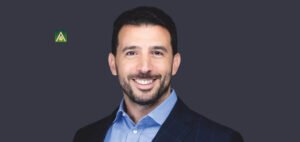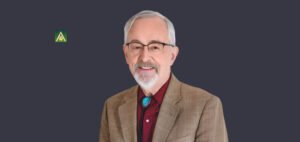Knowledge is the currency of the modern hyper-connected, digitalized, and globalized economy. However, the coin of knowledge has two sides – theoretical concepts and practical implementation. This aspect, if overlooked, can hinder a developing democratic nation’s socio-economic progress, but if managed properly, it can drive its success.
Grasping this key element, Prof. Ashish Arora’s journey began at a desk and further expanded to the boardroom. It began with curiosity, ambition, and a commitment to continuous learning.
A Saga Begins
Personally, his saga started with a mindset shaped by resilience, values, and the people who influenced him early on. The foundation was built through experiences that challenged Prof. Ashish, taught him immensely, and helped him understand the importance of learning, growth and purpose.
Professionally, the journey began when he took his first step into the industry. He quickly realized that growth in this space wasn’t just about mastering skills; it was about adapting, staying curious, and showing up with integrity and drive every day.
Then, Prof. Ashish moved to evolve into a dynamic path with training and education, which has allowed him to contribute meaningfully, lead with intention, and stay grounded in both his personal values and professional goals. The journey is ongoing.
Prof. Ashish’s career spans multiple disciplines. Multiple threads connect his choices across these different roles, and there is a method with which he balances the analytical with the human side of his work. For him, balancing is less about switching between two modes – industry and higher education and more about blending them.
“Industry gives me structure: data, logic, insights, and measurable impact. It drives my efficiency and helps me make informed decisions.” The education side is where the learning and meaning live. It’s in the way that he listens, communicates, connects with others and contributes to their learning and growth.
He strives to lead others with clarity and compassion. He uses knowledge to guide his actions and relies on emotional intelligence to ensure his actions are thoughtful and grounded in real-world context.
It’s an ongoing process, and it makes Prof. Ashish’s work more impactful and his leadership more authentic.
Making a True Distinction
Among the many projects he’s worked on, there’s one that stands out not because of its scale or complexity but because of its impact on people’s professional profiles.
This project was a human capital management project with 40,000 employees, and it was about solving a real problem that affected real people. Prof. Ashish remembers how clearly he defined success – not in metrics alone, but in stories. “Stories of people who felt heard, who felt supported, who experienced positive change because of what we built together.”
He worked with a team that cared deeply, collaborated openly, and stayed grounded in empathy. He combined strategy and heart, data and dialogue. And that balance is what allowed him to truly make a difference.
“Looking back, when one’s work improves someone’s life, even in a small way – it redefines success. It becomes more than a project; it becomes a legacy.”
The Professional Industry-Academia Equilibrium
Balancing industry and academia is a challenge and a unique advantage. For Prof. Ashish, it is about embracing the best of both worlds with practical impact and deep inquiry.
The industry keeps him grounded in the real world. It challenges him to solve complex problems, deliver results, and stay agile in fast-paced environments. It’s where theories are tested, ideas are implemented, and value is created on a scale.
Academia, on the other hand, offers me the space to think deeply, question assumptions, and explore ideas without the pressure of immediate outcomes. It sharpens his analytical thinking, nurtures a spirit of curiosity, and keeps him connected to the foundational principles behind the work he does.
Prof. Ashish applies academic rigor to industry challenges—bringing evidence-based thinking, critical analysis, and a long-term view. At the same time, he brings industry relevance into academic spaces—offering real-world context, up-to-date knowledge, and a sense of what’s needed in practice.
He has grown as a professional, and more importantly, he contributes more meaningfully to both spaces.
Learning from the Challenges
When asked to share a moment when something didn’t go as planned and what he took away from that experience, Prof. Ashish says, “Absolutely—here’s a reflective and professional version of that moment, written in a way that highlights growth, adaptability, and leadership.”
There was a project he was deeply invested in—one that had clear objectives, a solid strategy, and strong momentum. On paper, everything looked aligned. “But as we moved deeper into execution, unexpected challenges surfaced. Stakeholder expectations shifted, timelines got compressed, and despite our efforts, the outcome didn’t meet our initial vision.”
It was frustrating—especially after all the time, energy, and intention they put in, says Prof. Ashish. “But it’s about how you respond when the plan changes.”
What he took away was the value of adaptability and communication. He learned to listen more closely to early signals, to involve the right voices sooner, and to stay transparent when things start to drift. He also learned to detach his sense of worth from outcomes and instead focus on the integrity of the process—how he showed up, led the team, and navigated the pivot.
Looking back, it wasn’t a failure. It was a moment of growth. And in many ways, it shaped Prof. Ashish into a more thoughtful, agile, and human-centered professional.
A Wisdom of Ages
If he could go back and offer his younger self one piece of advice, it would be this: ‘Trust the process, not just the plan.’
Early on, Prof. Ashish was focused on getting things right, following the path, hitting the milestones, and proving himself. But he’s come to realize that growth doesn’t always follow a straight line. Plans shift. Opportunities evolve. Sometimes, what looks like a setback is actually a redirection toward something better.
Trusting the process means staying open, adaptable, and grounded in your values, even when the future isn’t clear. It means permitting yourself to learn, to pivot, and to be fully present—not just for the outcome but for everything that leads up to it.
This advice feels more important now than ever. The world is changing fast—industries, roles, and expectations are constantly evolving. “What remains constant is the mindset we bring: resilience, curiosity, and a willingness to show up fully even when we don’t have all the answers.”
That kind of trust in yourself—and in the journey—isn’t just advice. It’s a mindset. And it’s what sustains long-term growth, no matter what comes next.
Trends to Watch Out For
When asked what trends excite him the most right now and which ones he thinks should be approached with caution, Prof. Ashish states:
- Human-Centered Innovation
In both academia and industry, there’s a growing shift toward designing systems, technologies, and solutions that prioritize user experience and human impact. This trend excites professionals who want to combine technical rigor with meaningful outcomes.
- Interdisciplinary Collaboration
Boundaries between fields are blurring—academia is more open to applied, cross-disciplinary research, and industries are increasingly hiring for hybrid skill sets (e.g., tech + ethics, design + data science). It’s a great time to be a generalist with deep focus.
- Lifelong Learning
The rise of micro-learning platforms, qualifications and certifications, and modular programs allows professionals to stay current without committing to learning and earning. Academia is adapting by offering more flexible, accessible learning paths—and industry is valuing them more than ever.
- Research-to-Impact Pipelines
There’s more support than ever for translating academic research into real-world solutions—through startups, industry partnerships, or policy work. This empowers professionals who want to bridge theory and practice.
A Deep Bond to Remain Grounded
When asked whether it’s a morning ritual, a book, a place, or a conversation, that keeps him centered and inspired beyond his professional life, Prof. Ashish says that beyond his professional life, what keeps him centered is connection – “To people, to purpose, and to moments that remind me who I am outside of my role.”
He also stays inspired by learning outside his field – from sports to books to stories of people who’ve overcome challenges with grace. “They remind me that growth isn’t only about output, but about depth.”
And most importantly, he tries to make space for gratitude—for the journey, the lessons, and the privilege of being able to do work that he cares about. “That mindset keeps me both humble and hopeful.”
Because at the end of the day, staying grounded isn’t about escaping the professional world, it’s about having something deeper to return to when the noise fades.
Proud of His Achievements
As an academic, what Prof. Ashish’s most proud of is the impact he’s had on both his students and the field—whether through research that sparked new conversations, courses that ignited curiosity, or mentoring students who have gone on to do remarkable things. “Seeing others grow, challenge ideas, and push boundaries has been incredibly fulfilling.”
He’s also proud of his own evolution as a thinker and educator. Academia has a way of shaping your perspective—not just through learning, but through teaching. The process of translating complex ideas into accessible concepts, engaging with diverse viewpoints, and constantly evolving his work keeps him deeply connected to his mission as an academic.
Constantly Advancing Himself
Looking ahead, what excites Prof. Ashish the most is the work still on the horizon—“the questions I haven’t fully explored yet, the collaborations that are still to be had, and the evolving nature of my field. I’m driven by the opportunity to continue contributing to knowledge that makes a difference and to push the boundaries of what we know.”
On a personal level, he’s excited to keep refining his approach to teaching and mentoring, fostering environments where creativity and critical thinking can thrive. Professionally, he looks forward to further bridging the gap between theory and practice, collaborating across disciplines, and being part of conversations that shape the future of his field.
What keeps him moving is the sense that there is always more to discover, more to learn, and more to contribute—both in the classroom and in the broader academic community.
Leaving a Legacy
Finally, the legacy Prof. Ashish hopes to leave behind is one of inspiration, empowerment, and curiosity. “I want my students to walk away not just with knowledge but with the tools to think critically, the courage to challenge assumptions, and the confidence to trust their own voices.”
He hopes to have instilled in them a love for learning that extends beyond the classroom – a passion that doesn’t fade when exams are over or when their degree is completed. He wants them to see learning as a lifelong journey, one that’s driven by curiosity and the pursuit of understanding, not just for professional gain but for personal growth and societal impact.
Ultimately, he hopes that his students will remember him not only for the lessons he taught them but also for the example he gave on how to approach challenges with resilience, how to approach others with respect, and how to approach life with purpose.
“If I can inspire even a few of my students to make a meaningful difference, then I’ll consider my legacy fulfilled,” concludes Prof. Ashish Arora.
Read More: The Executive Stage: How Business Speakers Influence Strategy and Innovation




